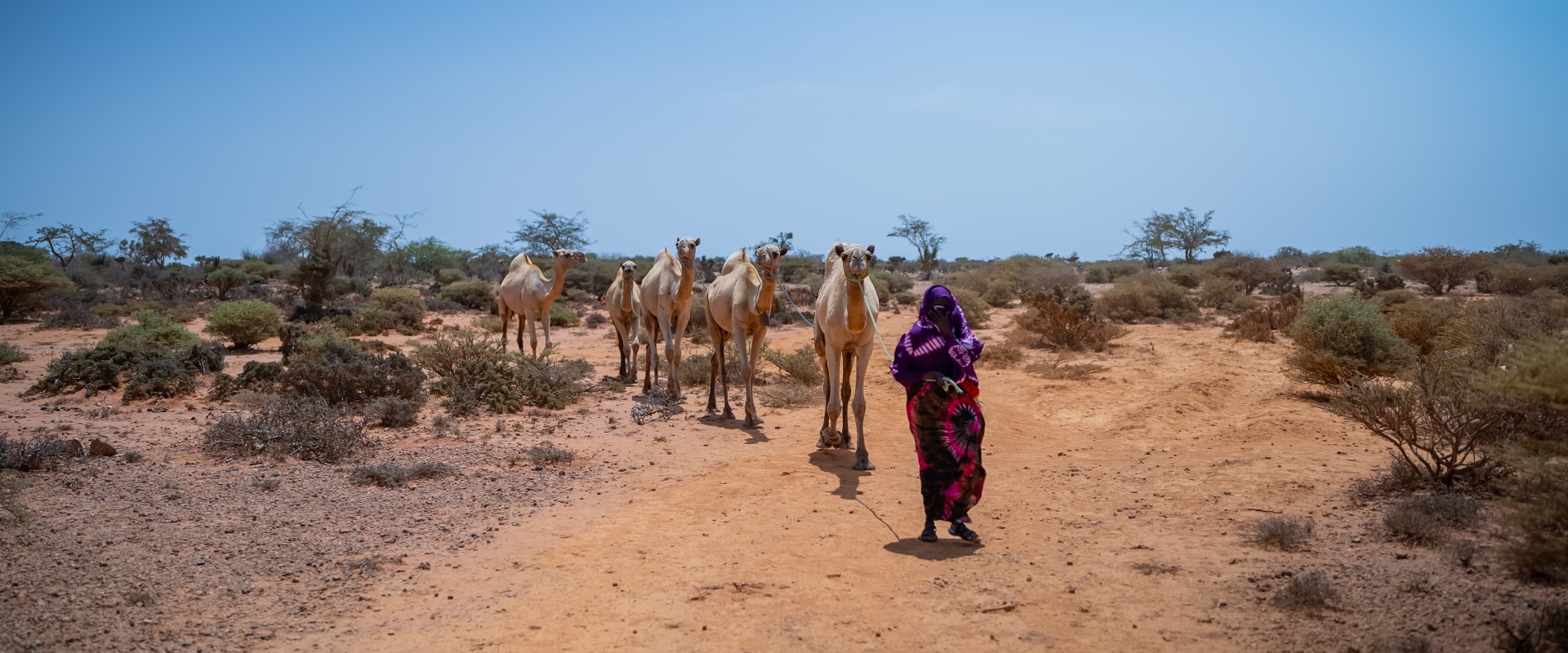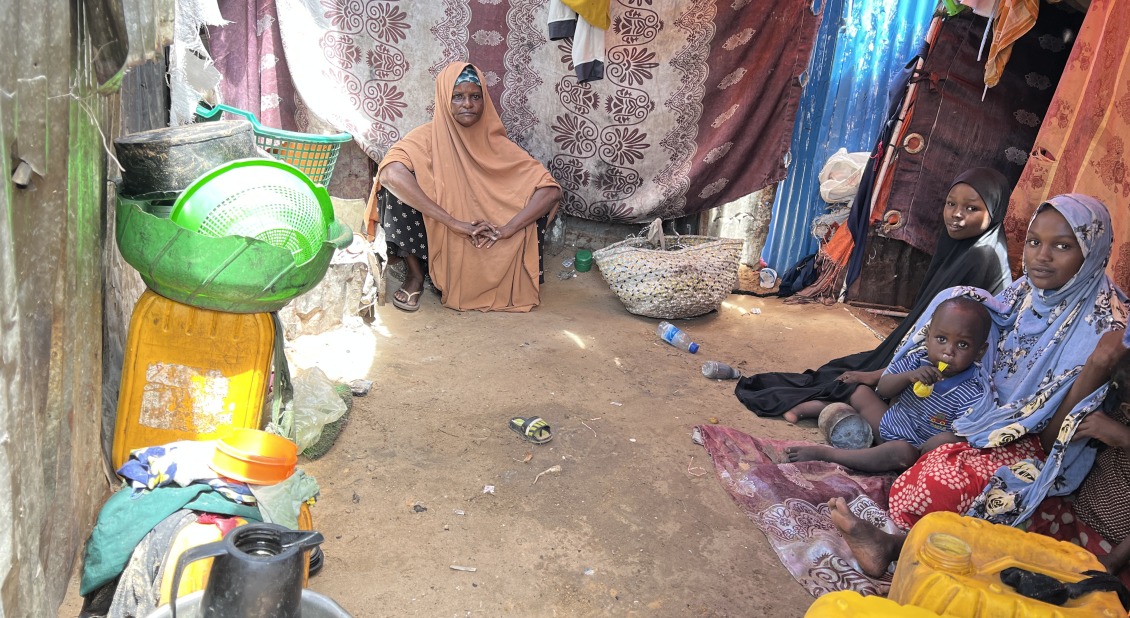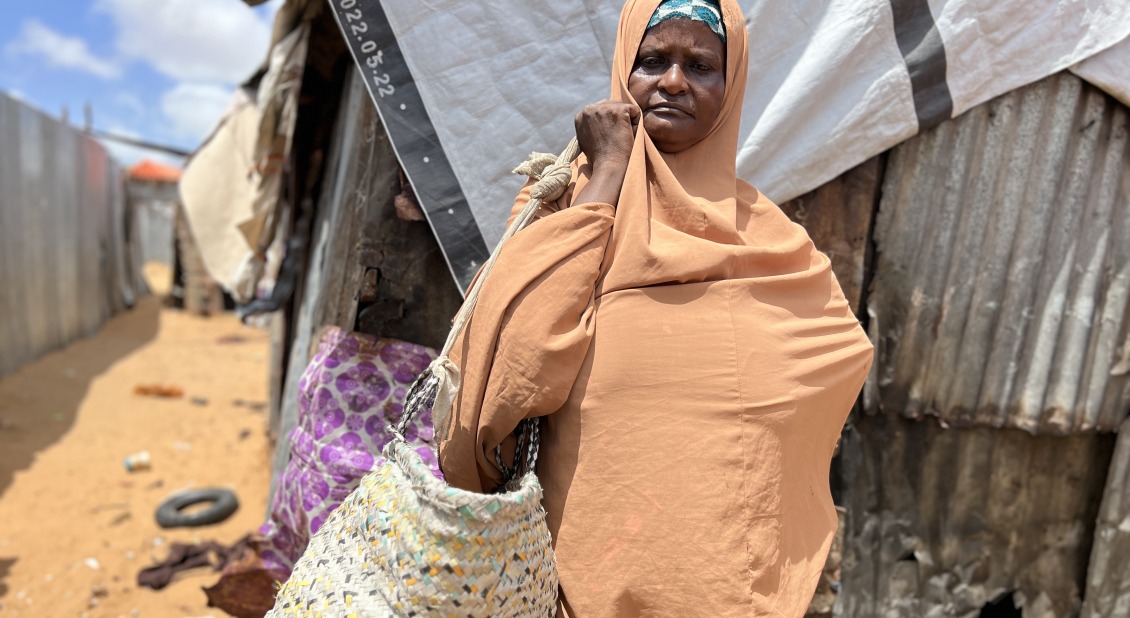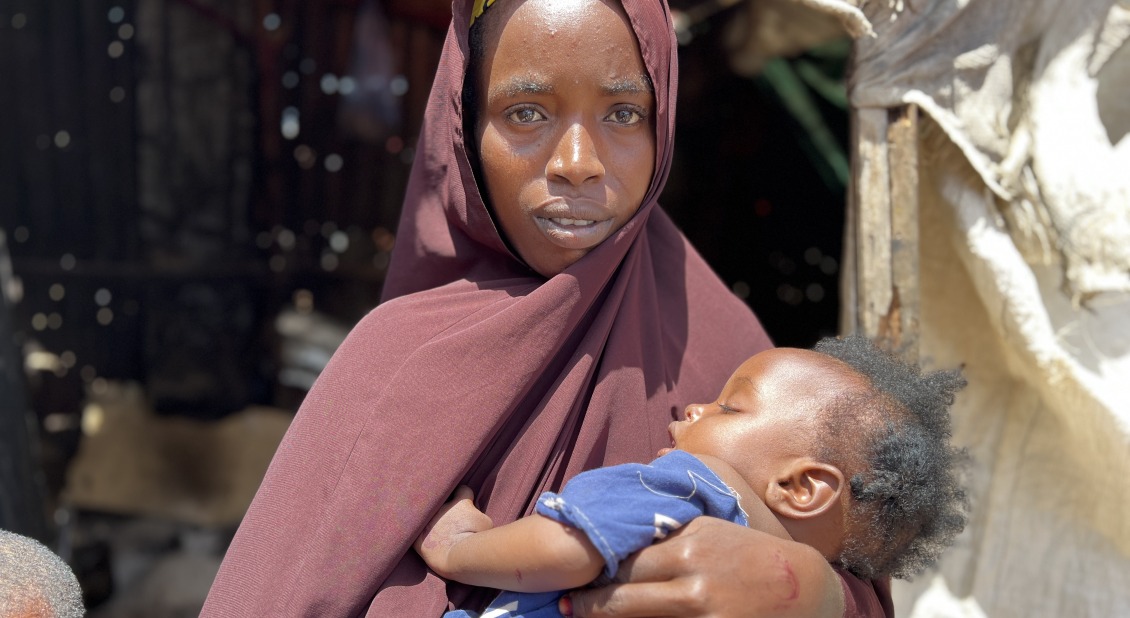
GIVE THIS RAMADAN

Displaced Families in Mogadishu Face Difficult Decisions
Last year, more than 43,000 people’s lives were claimed by Somalia’s drought — the region’s worst in 40 years. The unprecedented lack of rain, exacerbated by climate change, caused extreme hunger, displacement, and inequity throughout the country. Millions of people still struggle daily to find necessities like food and water.
In Mogadishu’s Kahda District, two mothers, Faadumo Haji Ahmed and Ifrah Muse, are among the many who face impossible choices — what they can afford, where they live, which family members can eat each day — as they try to survive the ongoing crises and provide for their families.
Although the latest wet season this spring brought some rain, it did little to undo months upon months of failed crops, deceased livestock, environmental destruction, and poverty caused by the drought.
Faadumo and her husband continue to experience challenges in finding enough nutritious food for themselves and their ten children. Last year, the family was forced to relocate more than 60 miles away from their small seasonal farm in Janale due to the unpredictable harvests and lack of food availability.

Faadumo’s husband recently returned to their home alone to begin planting, but their future remains uncertain. Faadumo and her family must navigate the harsh realities of living in a food-insecure environment. She has yet to return home.
“Where can we go back to? The farm is not ready, and we do not have food available there, we do not want to put our children at risk.” Faadumo says. “It is better to stay here, where we receive assistance from our neighbors and humanitarian organizations.”
Faadumo is her family’s primary breadwinner. As a laborer in a local market, her income is not enough to meet their basic needs. Her job is also unreliable — her community increasingly turns to machines rather than human labor, and she constantly faces the risk of losing her job. She used to do laundry work, but switched to another job where she carries items in a large basket on her back for people in the market. Faadumo struggles daily to find enough work to earn enough money to support her family.

Faadumo and her family depend on the closest health center, Garasbaley Health Center, for essential health and nutrition services. Action Against Hunger supports the health center in partnership with the Caafimaad Plus Consortium and the European Union Humanitarian Aid.
Faadumo speaks highly of Awale, a long-serving health worker who has provided her family with vital medical assistance on many occasions.
“Whenever my children became ill, I rushed them to Awale,” she says.
Faadumo’s struggles are all too common in the displacement camps around Mogadishu. One of her neighbors, Ifrah Muse, had been a herder who moved here with her family from southwestern Somalia. Their herds were decimated by the drought, leaving them with no source of income or food.
Ifrah’s husband works as a laborer using a wheelbarrow in the city, but his income is inconsistent. They struggle to put food on the table and do not know where their next meal will come from. The family relies on support from the Garasbaley Health Center, where Ifrah’s youngest daughter was treated for malnutrition and pneumonia.

Approximately 8.3 million people in Somalia are struggling to survive multiple crises — 1.8 million are malnourished children, and an estimated 477,700 children suffer from severe malnutrition.
In Mogadishu alone, more than one in five displaced people are acutely malnourished — an alarmingly high rate. Although recent rainfall has brought some relief in certain areas of Somalia, it has also caused large-scale destruction due to sudden flash floods. Two main rivers, the Shabelle and Jubba, have forced 219,000 people from their homes.
To address these ongoing crises, humanitarian partners and donors need to work collaboratively to tackle the root causes of food insecurity and provide immediate and sustained support to affected communities. Action Against Hunger provides vital support to displaced families, including access to nutritious food, health services, and livelihood programs. We also implement long-term solutions to build resilience and reduce vulnerability to future shocks.
Join our community of supporters passionate about ending world hunger.